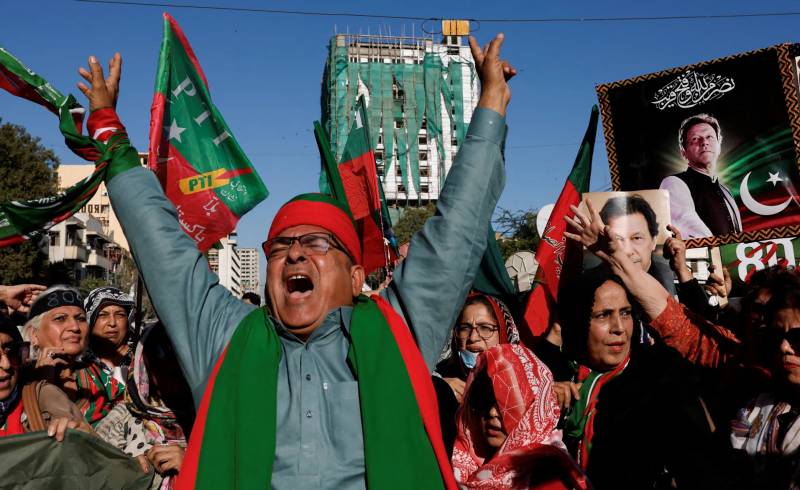
There is an argument to be made that it is not their struggling economies, but politics that is the center stage problem for states grappling with economic crises and serious political instability simultaneously. Political stability, and in turn sustainable socioeconomic policies can transform the fate of developing states in ways unimaginable. It's inverse - political instability and chaos can deteriorate the economic and social fabric of even the most developed states to an irreparable extent. The remarkable rise of China and India in recent decades and the continuous decline of Pakistan’s economy after the initial four decades of steady growth are the manifestation of this principle.
Although authoritarianism can't guarantee sustainable development and prosperity, it is essential to recognize that sociocultural progress often follows economic stability, a foundation built upon the pillars of political stability. What has hindered Pakistan’s path road to economic development is its chronic political instability, distinguishing it from both its contemporaries and younger neighboring states such as Bangladesh, India, and China.
Dr. Ishrat Hussain has rightly grasped the foundations of Pakistan’s economic decline in his book “Governing the Ungovernable: Institutional Reforms for Democratic Governance in Pakistan.” He has propounded that despite the internal and external challenges, Pakistan was able to hit 6% average annual growth during the initial forty years of independence. It outpaced India and Bangladesh across all economic and social indicators. However, since 1990, it has lagged behind its neighboring counterparts, experiencing a notable decline in its growth rate. He traced the roots of this slowdown in the decay of institutions of governance.
Pakistan’s political system has been facing a crisis of legitimacy, integrity, governance, and credibility since its inception. No elections in the country have ever been without controversies and post-election chaos; the momentum of which has significantly increased in the recent decade. Not a single political party in Pakistan is clean from corruption charges; even those who claim to be the champions of anti-corruption. From the Ursus tractor scandal and the Ashiana Iqbal Housing Scheme, to the Panama Papers scandal and the Toshakhana case, the integrity (or lack thereof) in the country’s political culture has become self-evident.
The overt or subtle intervention from the military, another recurrent theme of Pakistan’s political system, adds to the complexity of our political dilemma. The country has not only witnessed international defamation, but also internal chaos and disruption due to the unchecked military hegemony over civil institutions, media and society.
The necessity and urgency of reforms in Pakistan’s political system as underscored by international institutions, academia, media, and even political leaders themselves need to be practically enforced. Our leaders should think beyond the spectrum of political survival, blame games, and the quest for re-election. Establishing independent electoral bodies and ensuring a level playing field for all political parties can mitigate controversies and post-election chaos. Revival and strengthening of governance institutions that pertain to accountability, transparency, security, economic growth, and equity would be the steps in the right direction. Above all, there is a need to create a healthy balance between civil-military relations
Despite the inherent flaws in our political system and the corrupt political elite, our resilient and optimistic citizens stand out as our biggest asset. Just like characters in an epic film, they embody resilience and remain ready to forgive their corrupt leaders. Those who steer the political system of Pakistan need to recognize the urgency of preventing any future disappointments among the populace; lest they resort to “other” means that might prove catastrophic to handle.

